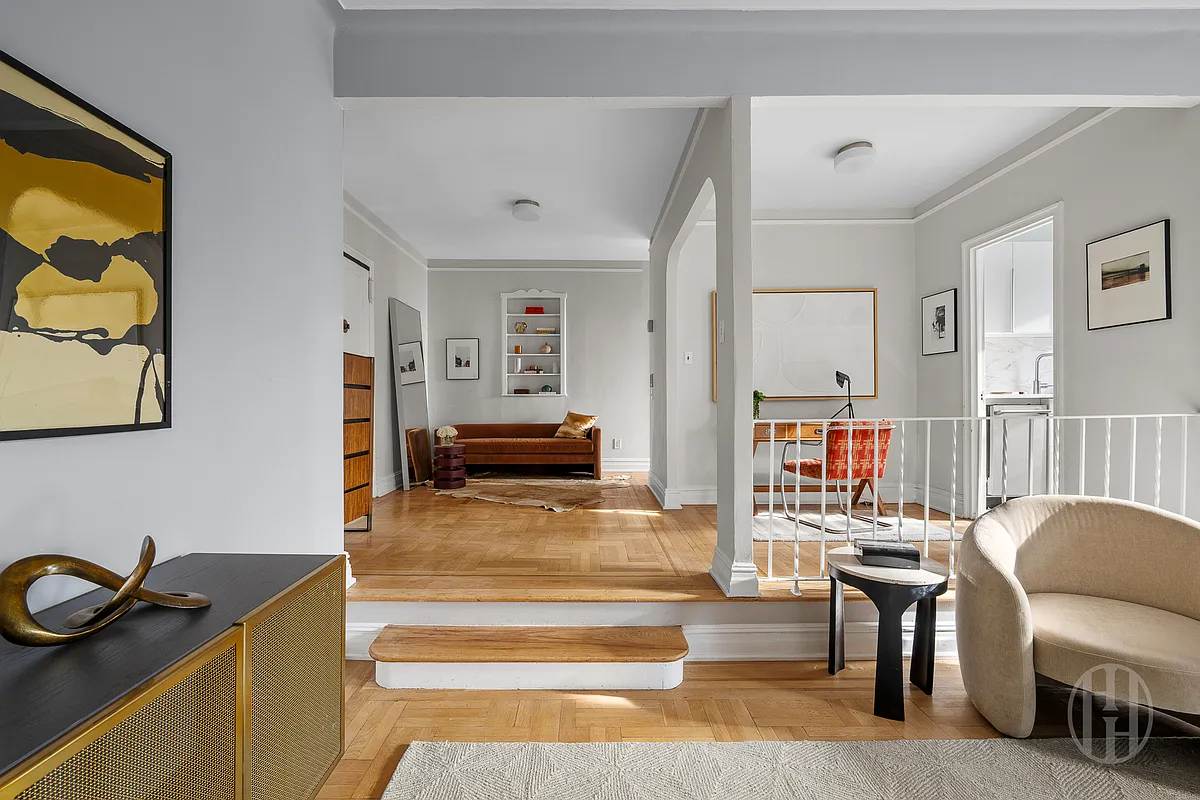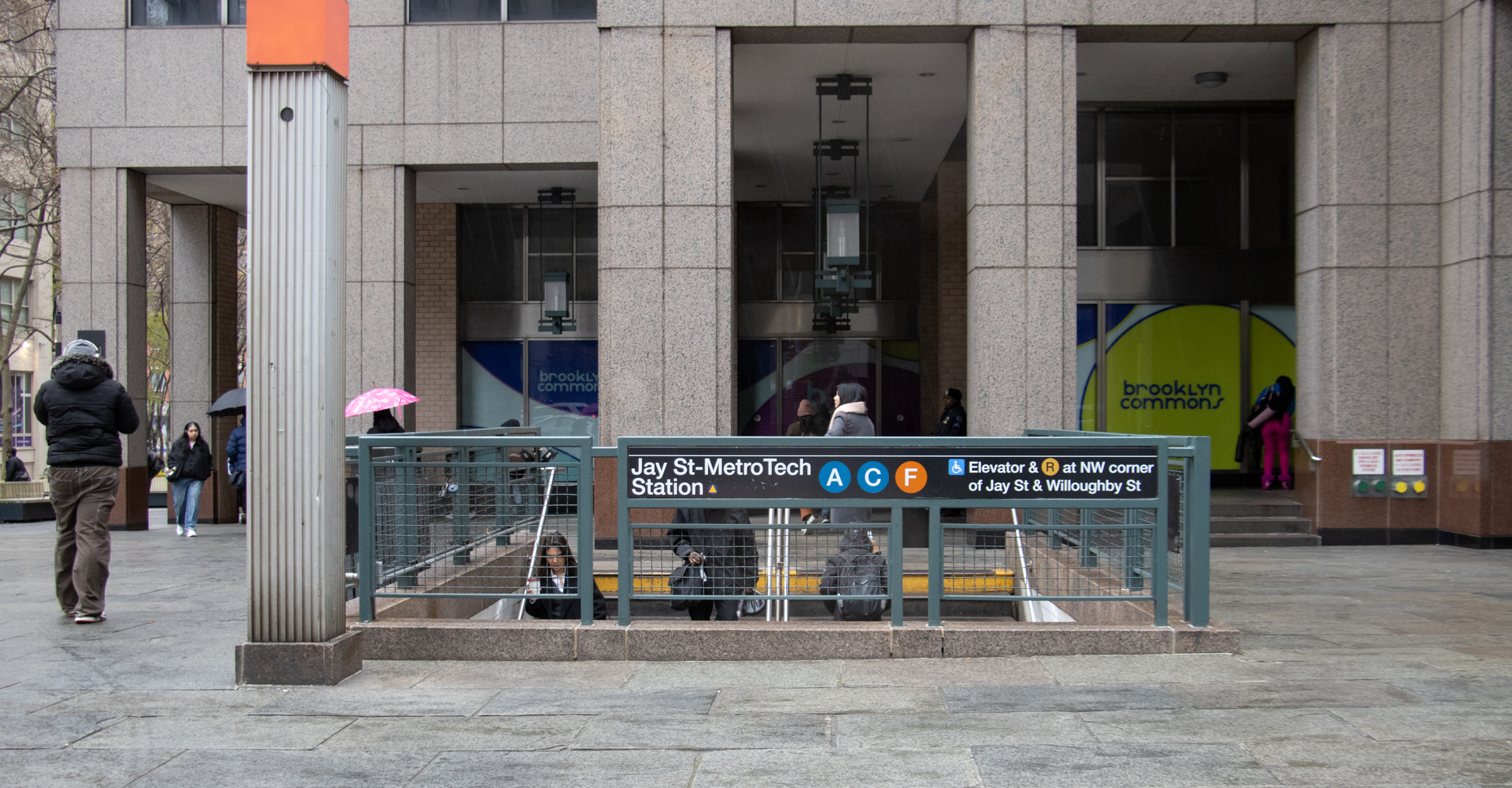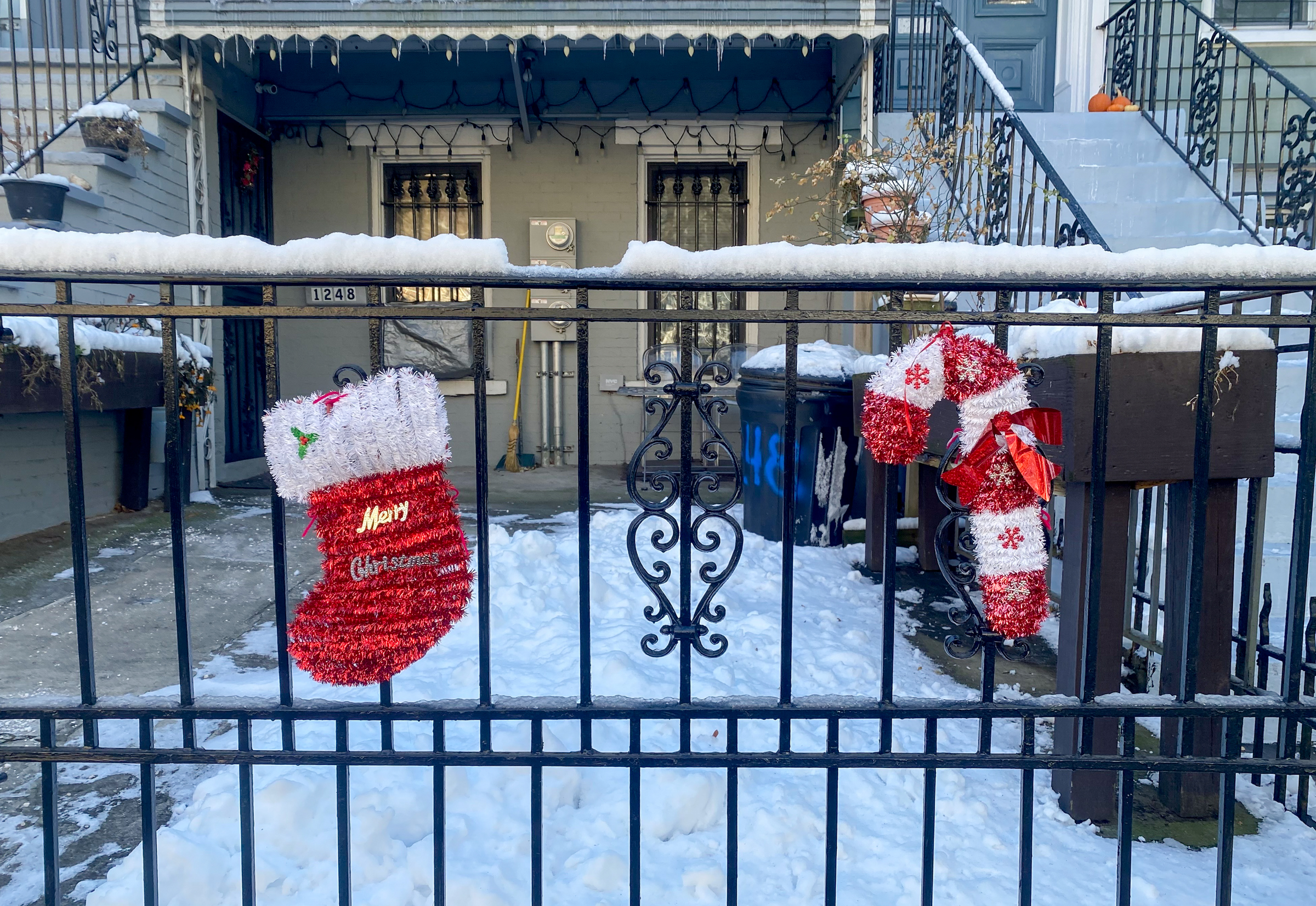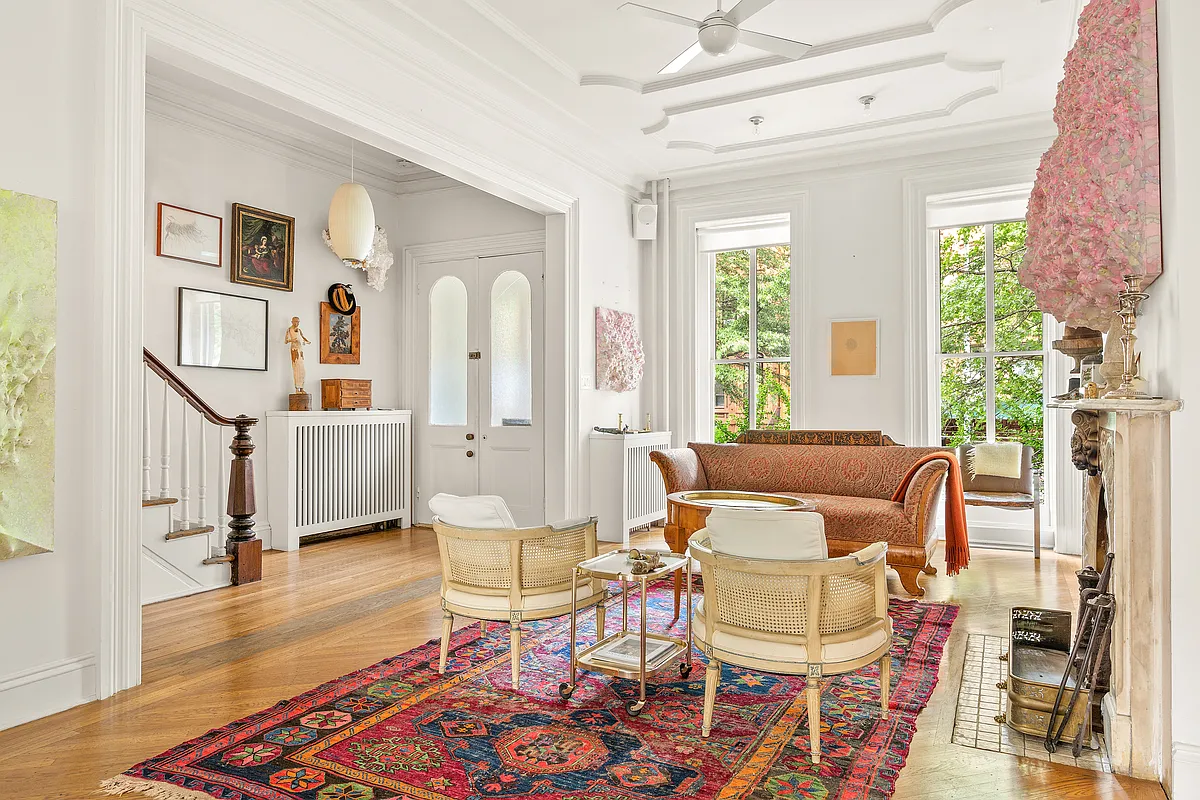Home Ownership Bad for Your Health
Perhaps those who feel desperate to own a home will take a pause after reading this article from Portfolio. “Homeownership is overrated and… it carries a downside as well as an upside,” they write, based on a study of health and happiness and home ownership among women. I find little evidence that homeowners are happier…


Perhaps those who feel desperate to own a home will take a pause after reading this article from Portfolio. “Homeownership is overrated and… it carries a downside as well as an upside,” they write, based on a study of health and happiness and home ownership among women.
I find little evidence that homeowners are happier by any of the following definitions: life satisfaction, overall mood, overall feeling, general moment-to-moment emotions (i.e., affect) and affect at home. Several factors might be at work: homeowners derive more pain (but no more joy) from both their home and their neighborhood. They are also more likely to be 12 pounds heavier, report lower health status and poorer sleep quality. They tend to spend less time on active leisure or with friends. The average homeowner reports less joy from love and relationships. She is also less likely to consider herself to enjoy being with people…
The great satisfaction from ownership, they say, comes when property values increase. Now that that’s less likely, and in many cases values are decreasing, why buy at all, when you can rent and be happy? “In fact, if Americans could be persuaded that rent payments aren’t ‘wasted money’ and that owning often makes less financial sense than renting, I think the rate of homeownership might, happily, drop substantially.”
Homeownership Makes You Fat and Unhappy [Portfolio]
Photo by TheTruthAbout.





Thanks, FinanceGuy, this makes a lot of sense. I am looking in areas of Brooklyn where there is a lot of foreclosure and the correction is farther along. Right now the monthly carrying costs are about equal to the monthly rent.
It is my impression that costs in places such as Carroll Gardens and Fort Greene are also equal to the monthly rent, because the rent is so darn high. The big difference there is the owners have to be pulling in a higher income than I am (two professionals) to get the mortgage in the first place.
Now, in these other areas such as Park Slope and Brooklyn Heights and what not, where the townhouses go for 2 or 3 million — it’s a fancy part of town, what can I say? It’s a wealthy community, like Westport, Conn. They’re paying for the schools. It just happens to be in New York City.
Thanks FinanceGuy–that’s very flattering. However, buying in areas without interesting old houses [i.e Lodi NJ or Sebb’s Staten Island–assuming that’s not part of SI, like the Mud Lane section of Stapleton, which is beautiful, but not that inexpensive] would be thinking like an investor instead of a [possibly irrational] lover of old houses. I did have confidence that NYC, Bklyn, and PLG/LM would remain stable and become more desirable, but that confidence defied conventional wisdom and might well have been wrong. I’m sure that there were a few people inspired, like me, by the “back to the city movement” who bought lovely old houses in Detroit. What happened to them? I only had wisdom in retrospect.
I’m afraid that I can’t confirm anything about return on my own equity investment from rent. There’s been no rental income because of our Lefferts Manor single-family restriction–something I welcomed since I didn’t want to be a landlord. Had I wanted to take on that burden I could have afforded a two or three family brownstone in lower Park Slope [a now outmoded term for parts of PS west of 7th Avenue]. My investment would have been even better, in terms of appreciation, but I don’t think I’d have been as happy.
Why use rents rather than sales comps?
Sales prices can easily get out of whack if buyers are willing to overpay now because they think, like Sebb, that there is some guarantee that they can sell for more later, or, for that matter, if sellers are willing to sell for discount prices because they think, like Bob Marvin’s friends in the white flight generation, that there will be no one to buy from them later. Bubbles and panics happen when the prices people are willing to pay now are based on their views about the prices someone else will be willing to pay later, which are based on the same thing. In that sort of market, any price is possible, at least for a while.
Since renters are paying current prices for current services, not speculating on the future, rents are much more tied to real factors like actual quality of life right now, current incomes, transportation, fashions, lifestyles, crime rates, and so on.
So if you want to separate out the bubble irrationality from the real improvements in NYC, look at (non-stabilized) rents. They’ve gone up quite a bit as neighborhoods have improved, but nothing like prices in the last decade.
Bob Marvin, by not thinking like an investor, did exactly what good investors do: he bought at the bottom. When everyone thinks the market can do nothing but go down, all news is likely to be good.
Today, though, the prices assume that all future news is going to be good — the sellers expect to be paid for improvements in the neighborhoods that haven’t even happened yet. That means that all future news is almost automatically going to be bad: it would be basically impossible for the world to turn out as good as current prices assume. So people who want to imitate Bob Marvin should probably be looking in Lodi NJ or Sebb’s Staten Island, or some other place that nobody thinks can make it. Not in Park Slope.
Mopar —
1. By rental value, I mean the price that a rational investor would pay for the house to hold it as a rental property, assuming that returns will come from rents, not from flipping the property.
2. Interest is gone. It belongs to the bank. You don’t get it back. What you get, if you get anything, is the equity you put into the house (downpayment plus the part of the mortgage payment that isn’t interest) plus or minus any change in the value of the house. Whether that will be profitable or not depends on how much you pay and what happens to prices.
If you pay 2x the rental value, it is hard to see how prices can keep going up unless rents suddenly start exploding. And rents can’t go up faster than incomes except in very short term, because people have to be able to pay them. So it seems unlikely that rents are quickly going to go up enough to justify current prices.
3. For most of the last 75 years, NYC buyers could project making 8-10% returns on their equity investment from rents alone assuming that rents would rise no faster than expenses and there would be no price appreciation. (Owner occupants made a bit more, if they did the calculation as if they were paying themselves rent at the market rate, because of the tax subsidies). Without knowing where Bob Marvin lives or when he bought, I’m willing to bet that if he can reconstruct what market rents were when he bought, he’ll confirm this. It was true everywhere in NYC from at least the 1940s until 10 years ago, with only the slightest exception at the top of the late 1980s boom.
Today, if you are finding those kinds of prices, you are looking in different neighborhoods than I am or you are looking harder. The prices I’m seeing are double that. But I have no special information about prices. Maybe there are deals out there that don’t show up in HOTD or maybe I’m underestimating rents. Or maybe the correction is further along where you are looking.
4. Scholars using national figures generally show lower expected returns (purchase prices are higher relative to rental values) than I am think have been true in NYC. Usually they find historic values that are around 15x annual rents, which means profit rates of under 6% rather than 8-10%. That rate seems implausibly low to me — it doesn’t make sense that equity owners should be willing to invest for less than the bank takes. So I think something is wrong in their numbers — most likely that in most of the country, rental property is significantly lower in quality than purchase property and it is hard for investigators to correct for this. So they are not really comparing comparables — they are comparing nicer owner-occupied stuff to not-so-nice rentals.
In NYC, in contrast, the rental market is large, liquid, and in all price ranges, and I think that it is possible to have a pretty good idea of what the real rental values are even for nice apartments (with the possible exception of the Jennifer Connolly mansion). There are plenty of garden floor-throughs that are in the same condition as the upstairs unit, and it isn’t hard to simply multiply the floor-through rent by 2 or 3 to get an estimate of the rental value of the duplex or triplex.
Since it is relatively easy (in Brownstone Brooklyn) to convert owner-occupied to rental, to change configurations, and even not impossible to change rentals to owner-occupied, normal market forces should keep all these prices pretty similar. If a building is more profitable in one form than the other, someone is likely to change it to the more profitable form — which has the effect of driving the prices back together.
Right now we have a major imbalance, as I read the market: owner occupants are paying way more than renters. So there is lots of profit to be made converting rentals into sales. Eventually, this will mean either that rents go up or sales prices go down — and my guess is that it’s going to be sales prices coming down.
“Interest is exactly as gone as rent. Interest is just the rent you pay for money.”
No, because when you sell the house, you get the money back.
Renters might put 10 percent of their income into savings but they can’t afford to put 30 to 50 percent of their income into savings, which is what they’re spending on rent.
Of course it’s foolish to buy if you have to sell at a loss. I would recommend not buying if you think you could not carry the house and/or rent it out in a time of crisis, such as divorce, illness, or having to move for a job.
I don’t know what you mean about buying houses that cost 2x rent. Do you mean the monthly carrying costs? I agree I wouldn’t buy such a house. The places I have bought have been cheaper than renting.
I tried explaining my reaction, and actually thought there was a dialogue going on here. Since I was actually trying to talk about it I have no idea what set YOU off in this last post. If you remember, I said ‘try not to sound like an ass,” and I thought your “comment was derogatory.” No where did I make it about you personally.
I may have put it strongly but I was dealing with what you said, or more to the point,how you said it- that is not a character assassination but if you want to take it that way, that’s your problem.
FYI-I wouldn’t trust Z to analyze a block of wood, let alone my or anyone else’s character. But you’ll find that out for yourself. But by all means jump on that bandwagon.
Bxgrl,
You read way more into my original post than you should have. No one seemed to be offended but you. But as ‘Z’ said, you are back and as nasty as ever.
Financeguy @ 3:51pm – first off, sorry to have gone all ad-hominem on you before…
but I still hold that your argument has some gaping holes – namely, that ownership costs are 2x rents in prime neighborhoods. As I wrote earlier, they’re not for me – and I made my purchase in late 2006. Factoring-in taxes, etc., I’m still close to 1:1.
And while you try to dismiss capital gains taxes, I was very p.o.’d when I had to sell some stock that I’d held for 10+ years. Likewise, I was quite pleased to have my home sale profits arrive tax-free!
As for the growing boundaries of PS, BH, DUMBO, etc – please, that is a recurrent joke on this site. Only fools think that 23rd Street at 3rd Avenue is ‘prime Park Slope.’
And with the bubble now bursting, those fringe locations will surely seem all the more fringe-y.
xanadu- But the upside of that, don’t homeowners form a core of (hopefully) stability in hard times exactly because of that? I don’t think gentrified neighborhoods go back, really, to what they were before. And in working class neighborhoods with a lot of longtime homeowners, those homeowners who have been there through good times and bad- they won’t leave so quick either.
True, renters don’t have as much to lose financially, but those who do flee neighborhoods still do lose a community, neighbors, a place they’ve called home. I wouldn’t be able to just up and leave so easily. I’m involved with community things here- I may not be invested financially, but I am in other ways.